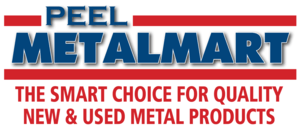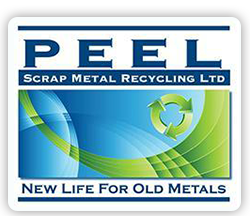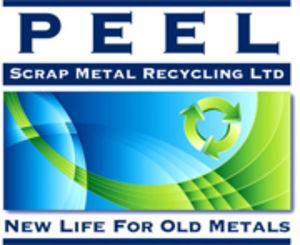Why It Is Increasingly Difficult To Do The Right Thing With End Of Life Electronics
After some improvement over the summer, steel prices slumped back again this month and other commodity prices remain volatile. With the possible exception of continued strength in gold, silver, and a few other precious and rare metals, we see no real recovery in sight yet.
There is still just too much uncertainty in the world at the moment and along with that, sluggish economic growth overall. While the factors at play are not something we can control, we all need to be prepared to manage the fallout including the adjustment of our buying and selling practices accordingly.
Given this uncertainty, it is really unhelpful when governments choose to increase the pressure on businesses by changing rules and moving goalposts. Picking winners and losers in the marketplace and overseeing the wrong types of interventions only make situations worse and, more often than not, destroy the solutions to problems governments are trying to solve.
Too Much Government….Again.
As a case in point, there are changes this month to the governing rules of the Ontario Electronic Stewardship (OES) program. These changes put an unfair burden on us, because we are registered with the program, and are unfair to our customers.
For those of you who are unfamiliar with the program, the idea has been to create a regulated infrastructure to deal specifically with certain end-of-life (EOL) consumer electronics. The purpose is to keep these end-of-life electronics out of landfill where they would otherwise leech hazardous material into the ground and groundwater, and at the same time to keep workers processing electronics safe and healthy and to recover the raw materials used in those electronics so that they can be re-used as feedstock in the manufacture of new products – a sustainable solution.
To accomplish this, the government in Ontario (and in other jurisdictions as well) passed enabling legislation that created a not-for-profit industry-led organization to oversee their approved recycling program for end-of-life electronics.
As part of the program, Environmental Handling Fees are collected when you buy new electronic products and these fees are intended to cover the costs of collecting, transporting and recycling the designated items at the end of their useful life as well as the costs of managing the program, promoting it and educating the public.
Different fees were established for each of the items that fall under the program. For example, $5.00 for a desktop printer, $1.40 for a desktop computer, and so on.
Fixing Things Aren’t Aren’t Broken
In its latest iteration under the Waste Free Ontario Act passed this summer, the fees will be canceled in favor of manufacturers covering the recycling costs. The details, including effective dates, have not been worked out, however, the ultimate intention is to compel manufacturers to design their products with efficient end-of-life (EOL) management in mind.
While most jurisdictions in Canada now have stewardship programs in place they are not aligned or interconnected. For this reason, the program in Ontario needs to ensure that the money collected in Ontario is used exclusively to recycle Ontario EOL material. The program has run into problems with people and companies trying to recycle quantities of electronics brought in from outside the province and so enforcement has become an issue.
As governments typically do, they have now increased the compliance costs for everyone in order to catch the few offenders out there. In our opinion, this just reduces the incentive to collect the material and is counterproductive to the intent of the program.
Specifically, we feel that the program updates not only meddle with privacy issues, but the more stringent audit procedures also add costs to what is already a very marginal recycling product at best. The real benefits to collectors like us of this EOL material are the safe disposition of that material and the opportunity it presents for customers to bring in other recyclable materials as well.
Lost Sales Opportunities For Us…Further Erosion Of Privacy For Our Customers.
As you can imagine, with each transaction, there is a small window of opportunity for us to engage customers in conversation, offer additional services which we feel might be helpful, and so on. If we have to spend that time explaining the OES system, it is an opportunity lost.
While most customers will want to ensure their electronics are properly handled and will trust us to do that, they really won’t care about the specific details from the Ministry of the Environment and Climate Change, or the Waste-Free Ontario Act, etc.
For the trouble they have taken to dig an old TV or computer out from the basement or the attic and bring it to us, however, we are asked to take their name, address, and license plate number and have them approve allowing us to share their personal information with the OES. And oh yes, the money we give them in exchange for that old TV or computer, it should be added to their income so it can be taxed. Really! Where is the balance? It might be easier to register a firearm.
Finally, since we are always concerned with privacy issues, we have asked the Canadian Association of Recycling Industries to look into this for us and on behalf of our customers, we will also continue to press for less hassle and more incentive to promote recycling of their EOL electronic products.
To our readers, our blogs are meant to inform and open some discussion. We always welcome your views and encourage you to comment on any of the topics we review.
Visit Peel Metal Mart
Just a reminder that our Metal Mart store is now open with great prices on a selection of quality new and re-usable steel and pipe, electrical and plumbing supplies, and more.
 Located across the street from Peel Scrap Metal at 2286 Anson Drive in Mississauga.
Located across the street from Peel Scrap Metal at 2286 Anson Drive in Mississauga.
It is open from 8:00 AM to 4:00 PM Monday to Friday. Visit us at our website at www.peelmetalmart.com or call us at 905-694-9858 for additional information.

